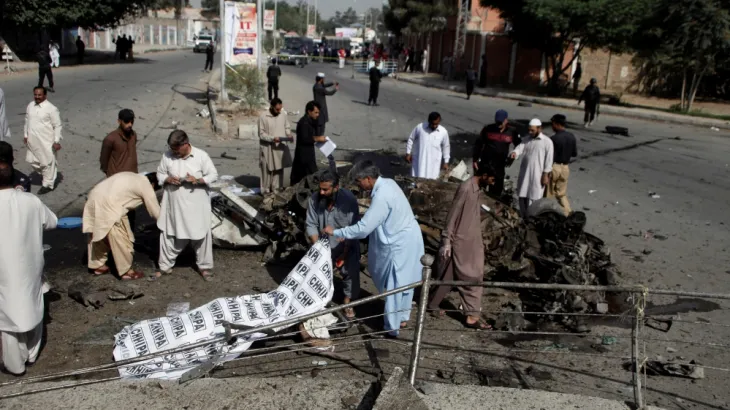The small town of Parachinar, nestled in the mountains of Pakistan’s Kurram district, has become an epicentre of pain, suffering, and violence for the Shia Muslim minority in the country. For years, this community has endured systematic targeting, with little to no substantial response from the state to protect its citizens or address the root causes of these attacks.
The violence has deepened not only the fractures between different sects within Pakistan but also highlighted the state’s disturbing inability, or unwillingness, to provide security to all of its citizens, regardless of their religious identity. While Pakistan is a country that prides itself on its Islamic identity and heritage, the persecution of the Shia Muslim community is one of the darkest stains on its history. The people of Parachinar, a predominantly Shia town, have been subjected to numerous bombings, shootings, and massacres by extremist groups for over a decade. The state’s indifference, combined with the relentless attacks from sectarian militias, has turned Parachinar into a symbol of the country’s failure to protect its minority populations.
The narrative surrounding the Shia community in Pakistan is a tragic one. The history of sectarian violence is deeply rooted in the country’s political and social fabric. Shia Muslims in Pakistan have faced increasing attacks from Sunni extremist groups, particularly those affiliated with the Taliban and other violent factions, who consider them heretics.
For years, the Shia minority in Parachinar, which sits on the border with Afghanistan, has faced targeted killings, bombings, and discrimination with little intervention or response from the Pakistani state. Parachinar remains one of the most vulnerable places for the Shia community. Kurram has been at the epicenter of sectarian violence, as it lies between two worlds: the largely Sunni-dominated areas of Pakistan and the Pashtun tribal areas that have been heavily influenced by extremist ideologies. In recent years, the situation in Parachinar has become increasingly dire, as attacks have grown in both frequency and scale.
One of the most horrific attacks in recent memory took place on January 21, 2025, when a bomb explosion targeted a Shia mosque in the heart of Parachinar. Over 50 people were killed, including many women and children, while dozens more were injured. This was just the latest in a long line of attacks that have left a profound scar on the people of Parachinar. Despite such appalling acts of violence, the Pakistani government’s response has been lackluster, if not outright negligent.
While the country’s leadership regularly expresses commitment to combating terrorism and extremism, the situation in Parachinar tells a different story. The government has failed to secure the region or hold accountable those responsible for these atrocities. Military operations in the region have been sporadic, with little effort to address the root causes of sectarian violence.
The situation is further exacerbated by the fact that Parachinar’s Shia community remains marginalized within the broader political landscape of Pakistan. As a minority within a predominantly Sunni country, Shia Muslims often face discrimination in political, social, and economic spheres.
The lack of political representation for the Shia community means that their voices go unheard when it comes to matters of security and justice. In addition to the lack of political will, there is also a broader sense of apathy within the Pakistani public towards the suffering of the Shia community. Sectarianism is a serious issue in Pakistan, and many Pakistanis are either indifferent to or unaware of the plight of the Shia minority. This cultural and social indifference only deepens the suffering of the people of Parachinar and other regions affected by sectarian violence.
The rise of extremist ideologies in Pakistan, particularly after the involvement of the country in the Afghan conflict in the 1980s, has played a crucial role in the sectarian violence faced by the Shia community. The influx of radical Sunni groups into Pakistan, fuelled by the global jihadist movement, has led to the systematic targeting of Shia Muslims. These groups, many of whom are aligned with the Taliban or other militant organisations, view the Shia as a threat to their vision of Islam and are determined to eradicate them from the region.
Moreover, the failure of the Pakistani military and intelligence agencies to address the root causes of sectarian violence has allowed these extremist groups to operate with relative impunity. While the military has focused on combating terrorism in other parts of the country, it has been remarkably ineffective in dealing with the violence in Parachinar and other Shia-majority areas.

